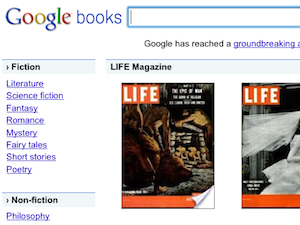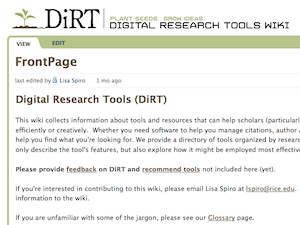For those not up to date on the latest tech-speak, “clickers” are small hand-held devices that allow students in large lecture classes to respond to a series of multiple-choice questions. Responses are beamed anonymously to the instructor and, in most cases, displayed as a graph or chart through a digital projector. A recent article in Perspectives on History, the monthly journal of the American Historical Association, provides an excellent review of clicker technology in the history classroom. “A well-planned clicker question,” the author writes, “can be a great way to introduce students to a problem or question that will structure a class session.”
 Extremely popular in science and social science classrooms, there are myriad uses of clicker technology in history and the other humanities. I will not summarize the Perspectives article here, though I encourage you to read it in full if you are interested.
Extremely popular in science and social science classrooms, there are myriad uses of clicker technology in history and the other humanities. I will not summarize the Perspectives article here, though I encourage you to read it in full if you are interested.
Some faculty use clickers for peer instruction. Others use them for fast, anonymous polling of the entire class – comparing student assumptions before and after a section or course can be quite revealing. Students can also be associated with individual clickers for grading purposes.
The Instructional Technology Group (ITG) manages the use of clickers at Yale. There are about 1,200 clickers available for student checkout at the Bass Library, and support staff are available to help instructors learn and use the technology. ITG hosts an introductory website on the use of clickers. Information about how to incorporate clickers into your teaching can be found there, or you can contact their office directly at: [email protected]. ITG also maintains an informal blog for clicker users at Yale, called the Clicker Clique.



